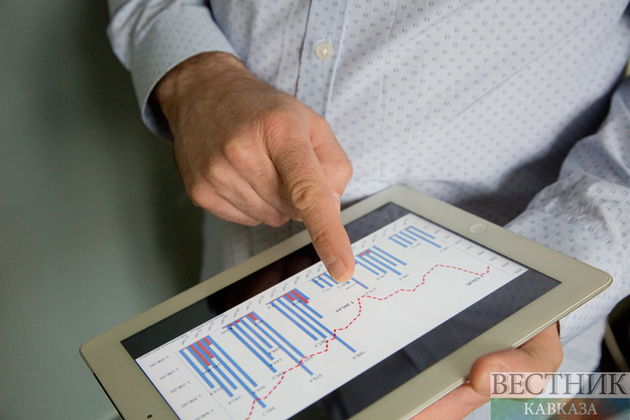Some are mirroring US rate hikes in order to keep more capital in their countries, while Turkey remains an outlier. The United States’ decision to increase interest rates is putting pressure on economies in the Middle East, economists told The Media Line, The Jerusalem Post writes.
Cem Çakmaklı, an assistant professor of economics at Koc University in Istanbul, told The Media Line sectors that import goods are especially feeling the impact of rising interest rates in the US. He says the hike in the US interest rate also puts major pressure on Turkey’s embattled currency. Last year, the Turkish lira lost 44% of its value and continued to depreciate. Imports more expensive across Middle East, economists say
The combination of the local currency losing its value at the same time as the US dollar is gaining strength has led to imports becoming more expensive. “The total amount of the money spent on imports increased a lot because of this currency depreciation,” Çakmaklı said. Even if products are meant for domestic consumption, many of them require foreign goods to produce, meaning they ultimately will bear a higher price tag for Turkish consumers and increase the trade deficit.
“There is this vicious loop,” he said. “Currency shock, then inflation, inflation increases, then currency increases further and then there is this loop.”
Inflation in Turkey is officially reported at more than 80%, however, independent economists believe it is much higher. The authorities restrain the independence of the country’s central bank, forcing interest rates to continually be kept low. That is despite orthodox economic policy stating that the rates must rise in order to fight against inflation.
Nevertheless, Turkey has seen steady economic growth under Erdogan’s governance. But an increase in interest rates would make borrowing more expensive, which could decrease investment and limit growth. That could hurt the Turkish president’s reputation with up to eight months to go before national elections. “Global inflation has an effect, but the primary reason for [increasing prices] is the choice of monetary policy,” Çakmaklı said.
IMF: Non-oil producing MidEast nations face 'slowdown'
The International Monetary Fund warned last week that countries in the Middle East that do not produce oil are going through a slowdown but stated that it expects 5.0% growth in the region. Nader Habibi, a professor of economics focused on the Middle East at Brandeis University, told The Media Line that some other countries in the region are increasing their interest rates because the US is doing so, leading to an economic slowdown in the Middle East. He explains that these countries have to mirror the US increase to avoid having capital leave their countries, but it also means that the cost of borrowing will go up.
Habibi warns there could be fallout from the crisis that goes beyond the economy. “There is a limit on how much you can push the burden on consumers because many of them are at the poverty threshold. And if you allow the cost of fuel and the cost of food to rise too fast, that is going to have an adverse impact on many people, which might lead to instability,” he told The Media Line. “Disruptions, street riots – that risk is high, as food becomes more expensive,” he said.
The series of uprisings across the Middle East known as the Arab Spring that began in Tunisia in 2010. Habibi believes that the chances for regime change at this point are low because governments are now better equipped to suppress protests. He warned though that Europe could see an increase in migrants fleeing economic hardship, especially from Lebanon, Tunisia and Egypt.
Refugees seeking asylum in Turkey, most from Syria, have attempted to cross into the European Union for years and that could increase as they continue to experience greater anti-migrant sentiment. Some Turkish political parties have blamed the refugees for threatening Turkish culture and putting pressure on public resources amid the country’s economic crisis.
Habibi says the year has not been all bad news for the region, with a strong US dollar and decreased access to oil due to the crisis in Ukraine, which benefits oil-exporting Gulf countries. For those who import energy, it is one more source of increased costs and pressure on their economies.






